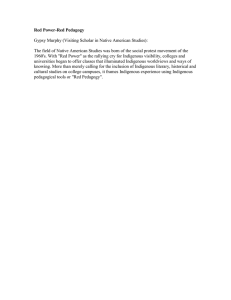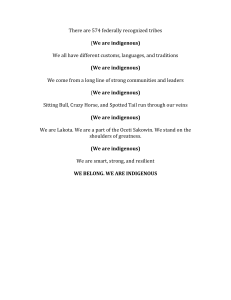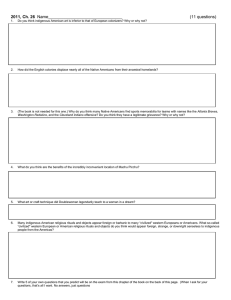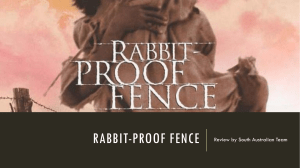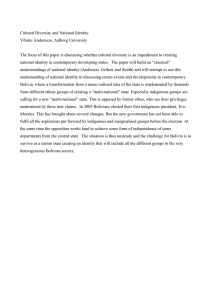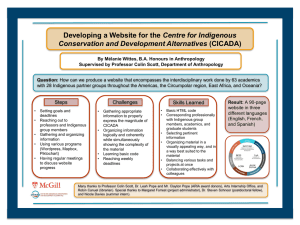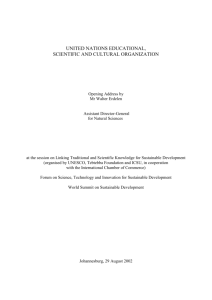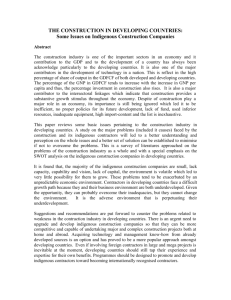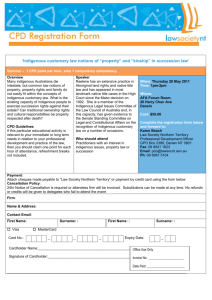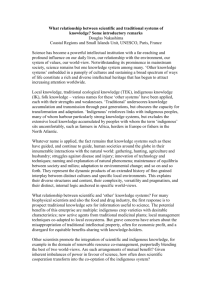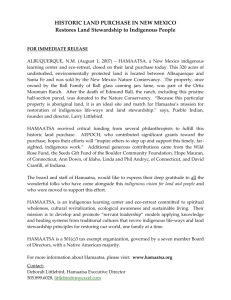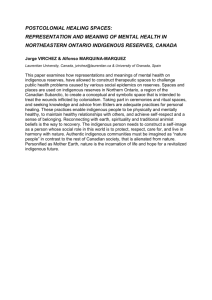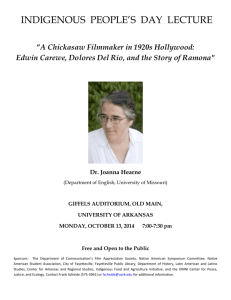Many scientists involved in biodiversity conservation and
advertisement
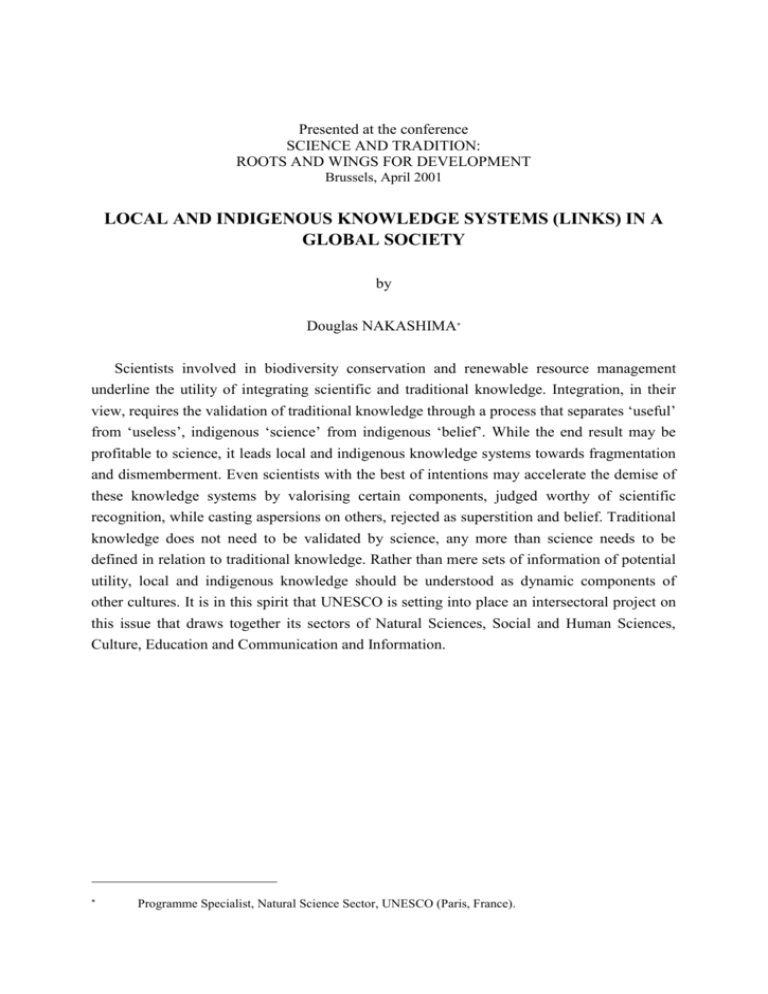
Presented at the conference SCIENCE AND TRADITION: ROOTS AND WINGS FOR DEVELOPMENT Brussels, April 2001 LOCAL AND INDIGENOUS KNOWLEDGE SYSTEMS (LINKS) IN A GLOBAL SOCIETY by Douglas NAKASHIMA Scientists involved in biodiversity conservation and renewable resource management underline the utility of integrating scientific and traditional knowledge. Integration, in their view, requires the validation of traditional knowledge through a process that separates ‘useful’ from ‘useless’, indigenous ‘science’ from indigenous ‘belief’. While the end result may be profitable to science, it leads local and indigenous knowledge systems towards fragmentation and dismemberment. Even scientists with the best of intentions may accelerate the demise of these knowledge systems by valorising certain components, judged worthy of scientific recognition, while casting aspersions on others, rejected as superstition and belief. Traditional knowledge does not need to be validated by science, any more than science needs to be defined in relation to traditional knowledge. Rather than mere sets of information of potential utility, local and indigenous knowledge should be understood as dynamic components of other cultures. It is in this spirit that UNESCO is setting into place an intersectoral project on this issue that draws together its sectors of Natural Sciences, Social and Human Sciences, Culture, Education and Communication and Information. Programme Specialist, Natural Science Sector, UNESCO (Paris, France).
